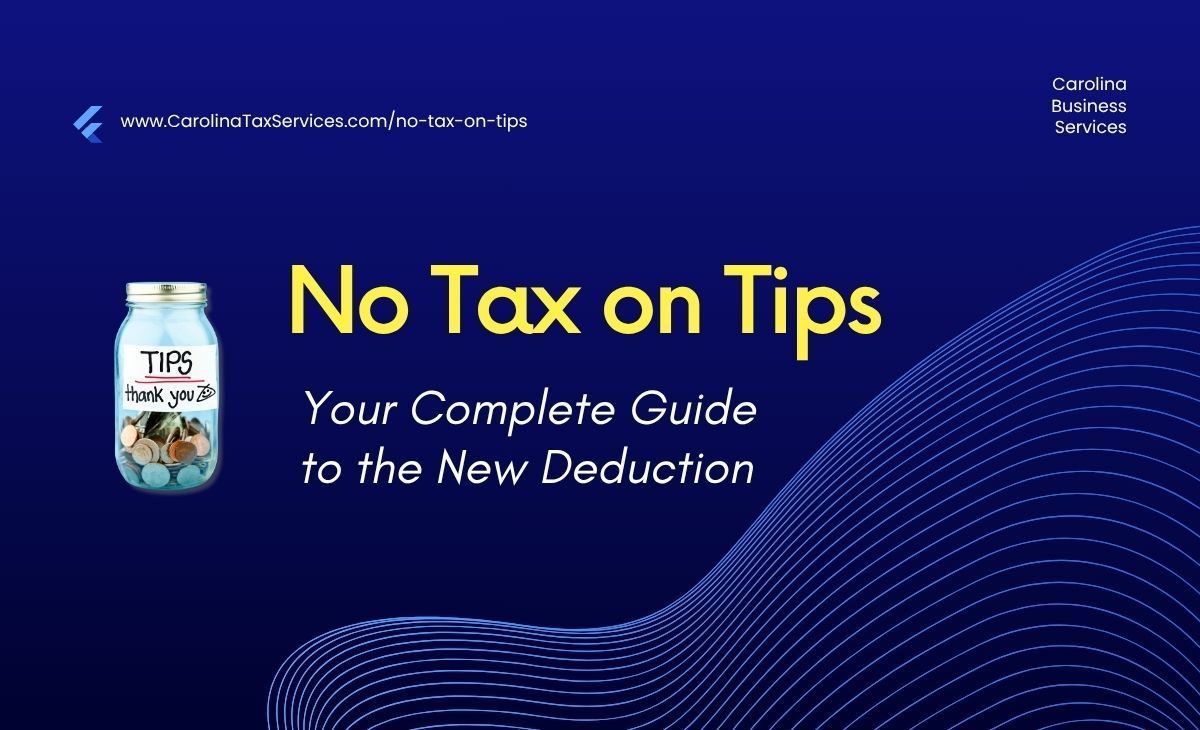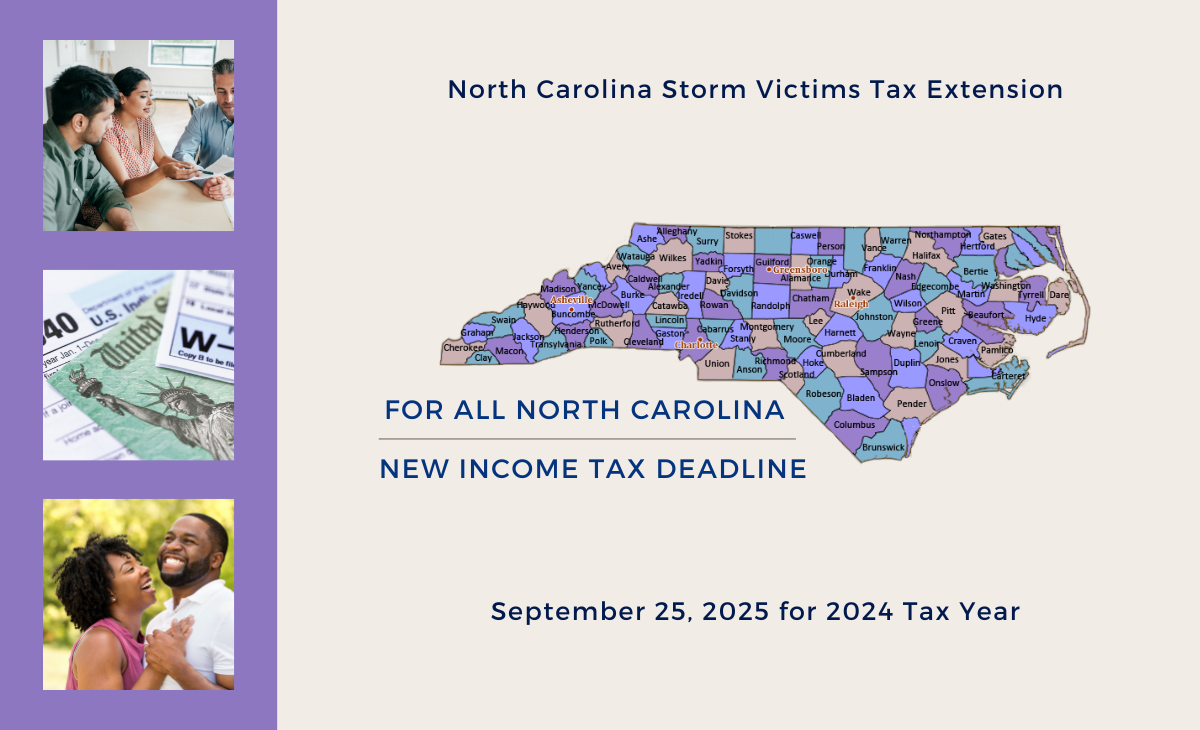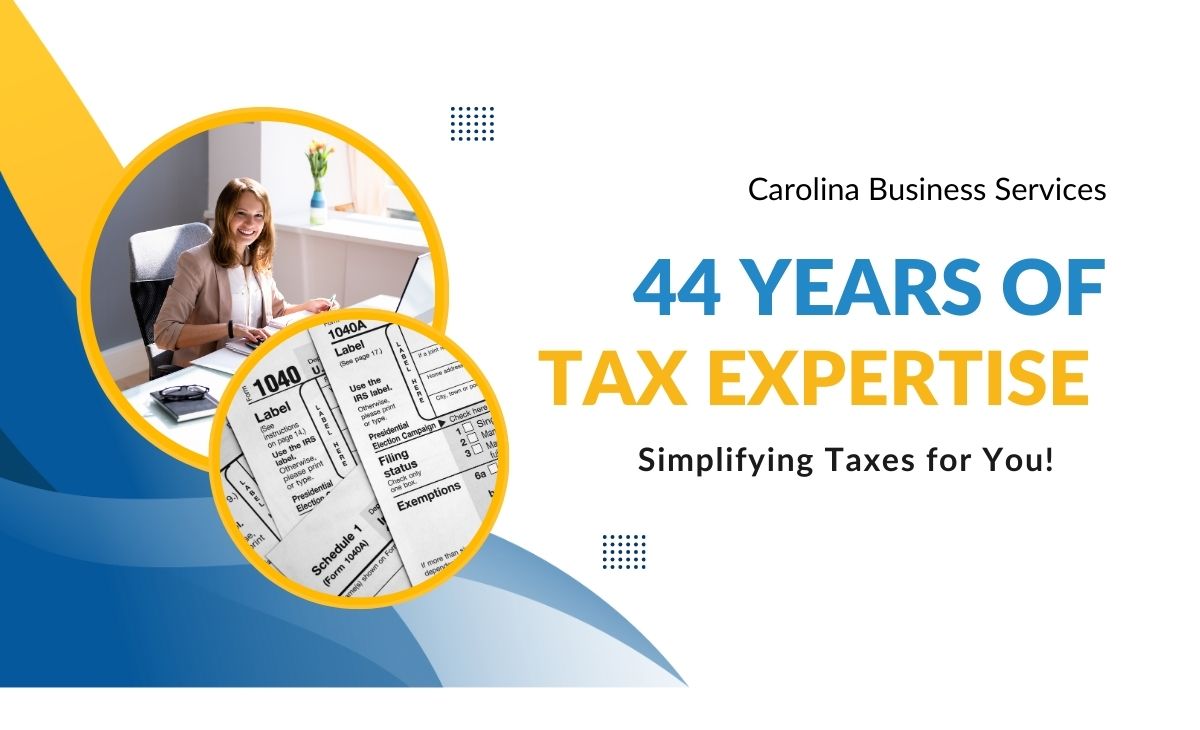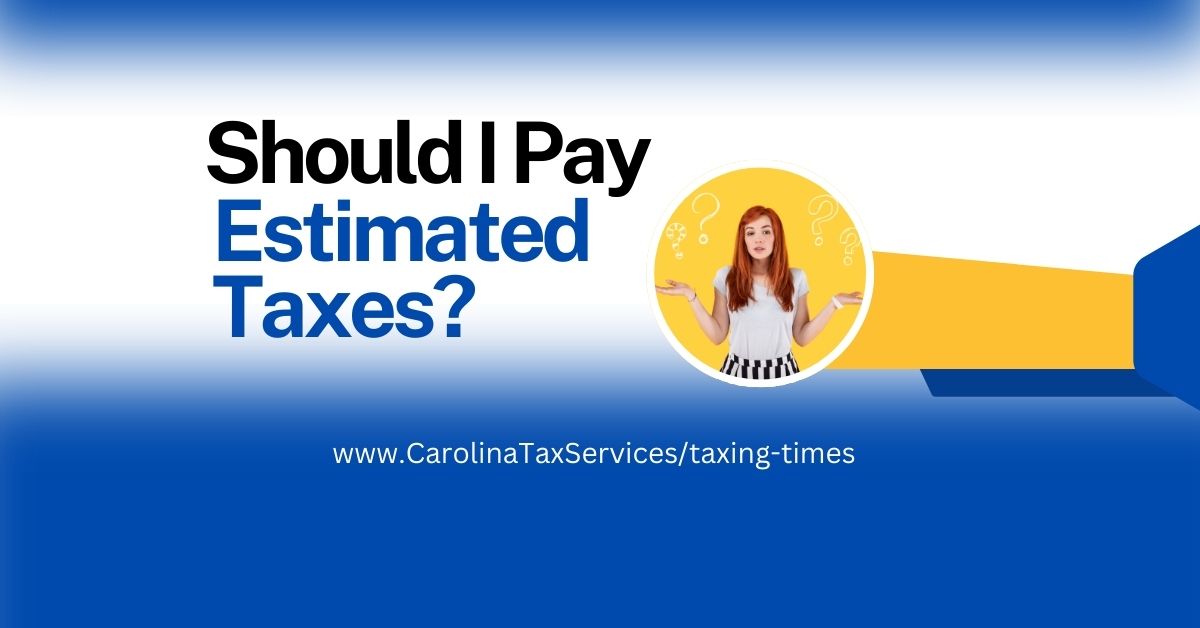The Complete Tax Planning Guide: Maximize Deductions, Credits, and Year-End Strategies
Get Organized Now
and Save Big Later
Your complete NEW tax planning checklist for individuals and small businesses — updated with all new One Big Beautiful Bill provisions.
This year brings major changes that could put significant money back in your pocket. The One Big Beautiful Bill (OBBB), signed into law on July 4, 2025, introduces powerful new deductions and updates existing ones in ways that affect nearly every taxpayer.
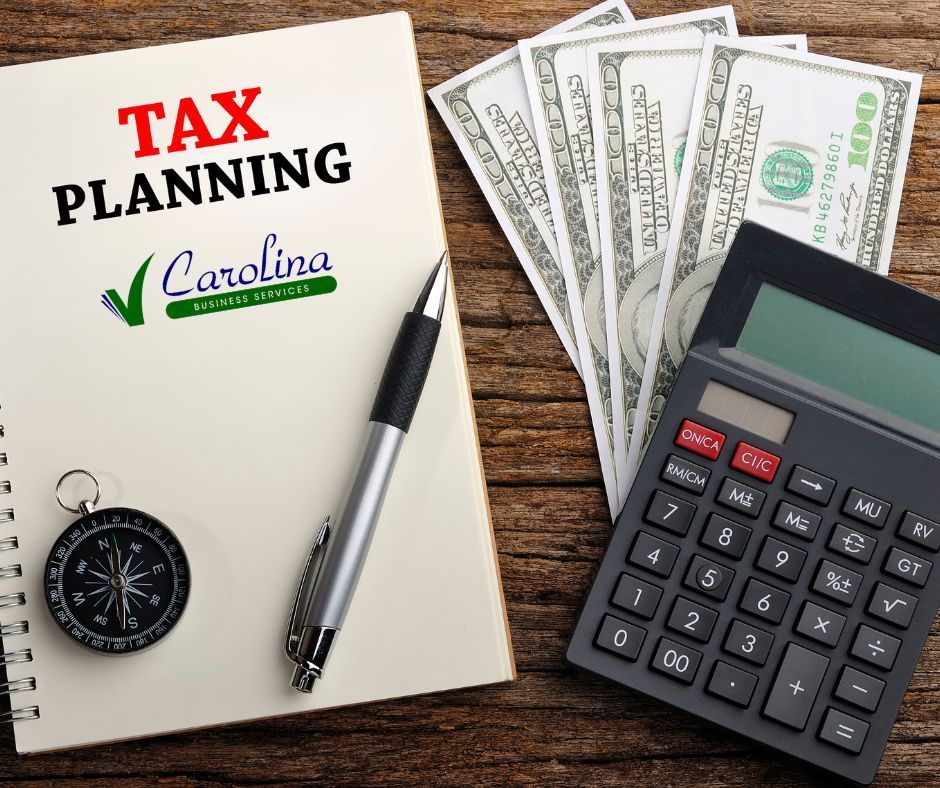
Whether you're an individual filer, a family, or a small business owner, staying organized throughout the year means bigger savings when it's time to file. This comprehensive guide helps ensure you won't miss a single opportunity to reduce the taxes you owe.
Understanding Tax Terms
Before we dive in, here are some common tax abbreviations you'll see throughout this guide:
1099: Information return for various types of income
Above-the-Line Deduction: A deduction you can claim even if you take the standard deduction (you don't need to itemize)
AGI: Adjusted Gross Income (your total income minus certain deductions)
MAGI: Modified Adjusted Gross Income (AGI plus certain excluded income)
OBBB: One Big Beautiful Bill Act (the new tax law signed July 4, 2025)
Phase-Out: The income level where a deduction or credit starts to decrease and eventually disappears
QBI: Qualified Business Income
RMD: Required Minimum Distribution (for retirees)
SALT: State and Local Tax (deduction)
SSN: Social Security Number
W-2: Wage and Tax Statement (from employers)
Overview
This tax planning checklist is your complete guide to preparing for the 2025 tax year (filed in early 2026). We've organized it into easy-to-follow sections that cover:
- Personal information and essential documents you'll need to gather
- NEW deductions from the One Big Beautiful Bill you've never had access to before
- Income documentation across all sources
- Standard deductions and credits with updated 2025 limits
- Year-end planning strategies to maximize your savings
- Important deadlines you can't afford to miss
The checklist includes both the new OBBB provisions and all the traditional tax planning items you need for a complete, organized approach to filing your taxes.
Personal Information & Documentation
Before diving into deductions and credits, let's start with the basics. Having these documents ready will make tax preparation smooth and efficient.
Essential Documents to Gather
- Social Security numbers for yourself, spouse, and all dependents (required for many new deductions)
- Prior year tax return for reference
- Bank account and routing numbers for direct deposit/payment
- Photo identification (driver's license or state ID)
- Documentation of address changes during the year
Pro Tip: Having last year's return on hand helps you spot changes in your income or deductions from year to year.
NEW: One Big Beautiful Bill Deductions (2025-2028)
These are brand-new deductions available starting with your 2025 tax return. Don't miss out on these valuable opportunities!
Tips Income Deduction (NEW!)
If you work in a tipped occupation, this could be a game-changer.
How it works:
- Deduct up to $25,000 in qualified tips per year (above-the-line deduction)
- Phases out if MAGI exceeds $150,000 (single) or $300,000 (joint)
- Valid SSN required for you and spouse
- Tips must be shown separately on your W-2 or reported on Form 4137
Checklist items:
- Verify your W-2 shows total cash tips separately
- Confirm your occupation is on the Treasury Department's qualifying list
- Check if your income is under the phase-out threshold
- Learn more about the No Tax on Tips deduction
Overtime Pay Deduction (NEW!)
If you earn overtime as an hourly worker, you may qualify for this valuable deduction.
How it works:
- Deduct up to $12,500 (single) or $25,000 (joint) per year
- Phases out starting at $150,000 MAGI (single) or $300,000 (joint)
- Valid SSN required for you and spouse
- Your employer must show qualified overtime compensation separately on your W-2
Checklist items:
- Verify your W-2 shows qualified overtime compensation separately
- Confirm you meet income requirements
- Note: Cannot claim same wages as both tips and overtime
Car Loan Interest Deduction (NEW!)
Bought a new vehicle? You may be able to deduct the interest on your car loan.
How it works:
- Deduct up to $10,000 per year in car loan interest (above-the-line deduction)
- Phases out starting at $100,000 MAGI (single) or $200,000 (joint)
- Vehicle must be assembled in the United States
- Qualifying vehicles: Cars, minivans, SUVs, pickup trucks, vans, motorcycles, ATVs
- Does NOT include: Campers or RVs
Checklist items:
- Vehicle loan interest statements from lender
- Vehicle Identification Number (VIN)
- Proof vehicle was assembled in the United States
- Verify your income is under the phase-out threshold
Senior Deduction Enhancement (NEW!)
If you're 65 or older, you get an extra boost to your standard deduction.
How it works:
- Additional $6,000 standard deduction if you're age 65 or older
- Additional $6,000 if your spouse is age 65 or older
- Phases out if AGI exceeds $75,000 (single) or $150,000 (joint)
- Available for tax years 2025-2028. After 2028, this enhanced deduction is scheduled to expire and revert to previous amounts unless Congress extends it.
Checklist items:
- Confirm your age (65 or older during the tax year)
- Confirm spouse's age if married
- Check if your income is under the phase-out threshold
State and Local Taxes (SALT) - UPDATED LIMITS!
The SALT deduction cap just got a major increase for many taxpayers.
How it works:
- Deduction cap raised to $40,000 (if income under $500,000)
- Phases down to $10,000 for incomes above $500,000
- Cap increases with inflation through 2029
- Includes state and local income taxes, property taxes, and personal property taxes
Checklist items:
- State and local income tax paid
- Property taxes paid
- Personal property taxes (vehicles)
- Verify if you're under the $500,000 income threshold
Income Documentation
Let's make sure you capture all your income sources. Missing documentation means missing deductions or, worse, IRS notices down the road.

Employment Income
- W-2 forms from all employers (check for separate reporting of tips and overtime)
- 1099-NEC forms for independent contractor work
- 1099-MISC for miscellaneous income
- 1099-K for payment card and third-party transactions
Investment & Retirement Income
- 1099-INT for interest income
- 1099-DIV for dividend income
- 1099-B for proceeds from broker transactions
- 1099-R for distributions from pensions, annuities, retirement plans, or IRAs
- Records of capital gains and losses
- Cryptocurrency transaction records
Other Income Sources
- 1099-G for unemployment compensation or state/local tax refunds
- SSA-1099 for Social Security benefits
- Rental property income and expense records
- Self-employment income records
- Alimony received (if divorce finalized before 2019)
Retirement Contributions & Deductions
Planning for retirement while reducing your current tax bill? These contributions do double duty.
2025 Contribution Limits:
- Traditional IRA contributions: $7,000 limit ($8,000 if age 50+)
- Roth IRA contributions: Same limits as traditional IRA
- HSA contributions: $4,300 (individual) or $8,550 (family)
Checklist items:
- Traditional IRA contributions for 2025
- Roth IRA contributions for 2025
- 401(k), 403(b), or 457 plan contributions
- HSA contributions
- SEP-IRA or SOLO 401(k) contributions (for self-employed)
Pro Tip: You have until April 15, 2026, to make IRA contributions that count for your 2025 tax year.
Medical & Health Expenses
Medical expenses can add up fast. Track them carefully — they may be deductible if they exceed 7.5% of your adjusted gross income.
Checklist items:
- Health insurance premiums (if self-employed)
- Out-of-pocket medical and dental expenses
- Prescription medications
- Long-term care insurance premiums
- Medical mileage log (if applicable)
Homeownership Expenses
Homeownership comes with valuable tax benefits. Make sure you're capturing them all.
Checklist items:
- Form 1098 for mortgage interest paid
- Property tax statements (remember the higher SALT cap!)
- Records of energy-efficient home improvements (credits expire Dec. 31, 2025)
- Home office expenses (if self-employed)
- Points paid on mortgage
Important: Energy Efficient Home Improvement Credit expires December 31, 2025. If you're planning upgrades, act now!
Charitable Contributions
Giving back feels good — and it can reduce your tax bill too.
Checklist items:
- Cash donation receipts
- Written acknowledgments for donations over $250
- Non-cash donation records with fair market values
- Mileage log for volunteer work
- Form 1098-C for vehicle donations
Remember: Documentation is key. The IRS requires written acknowledgment for any single donation of $250 or more.
Education Expenses
Whether you're in school or paying for your children's education, these expenses may qualify for valuable credits or deductions.
Checklist items:
- Form 1098-T (Tuition Statement)
- Form 1098-E (Student Loan Interest Statement)
- Records of qualified education expenses
- Student loan interest paid
Business & Self-Employment Items
If you're self-employed or own a small business, these items are essential for maximizing your deductions.
Standard Business Items
- Schedule C income and expenses
- Form 1099-NEC for contractors paid over $2,000 (NEW threshold starting 2026)
- Business asset purchases (100% bonus depreciation now available!)
- Quarterly estimated tax payment records
- Self-employment tax calculation
- Business use of home calculation
- Vehicle expense logs (actual expenses or mileage)
NEW: One Big Beautiful Bill Business Provisions
How it works:
- QBI Deduction (Section 199A) - now permanent at 20%
- Higher SSTB phaseout thresholds: $75,000 (single) or $150,000 (joint)
- Minimum $400 QBI deduction if you have $1,000+ in qualified business income
- 100% bonus depreciation for property placed in service Jan. 20, 2025 - Dec. 31, 2029
Checklist items:
- QBI Deduction eligibility and calculation
- Business equipment purchases (check bonus depreciation eligibility)
- Pass-through entity tax (PTET) workarounds (now available for all businesses)
Tax Credits to Consider
Credits are even better than deductions because they reduce your tax bill dollar-for-dollar.
Family & Dependent Credits - ENHANCED!
How it works:
- Child Tax Credit: $2,200 per qualifying child for 2025 (up from $2,000)
- Additional Child Tax Credit: $1,400 (refundable, adjusted for inflation)
- Income phaseout: $200,000 (single) or $400,000 (joint) - now permanent
Checklist items:
- Child Tax Credit (qualifying children under age 17)
- Additional Child Tax Credit (refundable portion)
- Credit for Other Dependents ($500 per qualifying dependent)
- Child and Dependent Care Credit
- Adoption Credit
Education Credits
- American Opportunity Tax Credit (up to $2,500)
- Lifetime Learning Credit (up to $2,000)
Energy & Home Credits - EXPIRING SOON!
URGENT: Some energy credits are expiring. Act now to take advantage!
Checklist items:
- Electric Vehicle Credit (EXPIRES Sept. 30, 2025 - act now!)
- Energy Efficient Home Improvement Credit (EXPIRES Dec. 31, 2025)
- Residential Clean Energy Credit (solar, wind, geothermal)
Income-Based Credits
- Earned Income Tax Credit (EITC)
- Retirement Savings Contributions Credit (Saver's Credit)
- Premium Tax Credit (health insurance marketplace)
Year-End Tax Planning Strategies
Smart planning before December 31 can make a big difference in your final tax bill.
Income Timing
- Consider deferring income to next year if beneficial
- Accelerate income if expecting higher tax bracket next year
- Review estimated tax payments and adjust if needed
- Consider Roth IRA conversions if in lower tax bracket
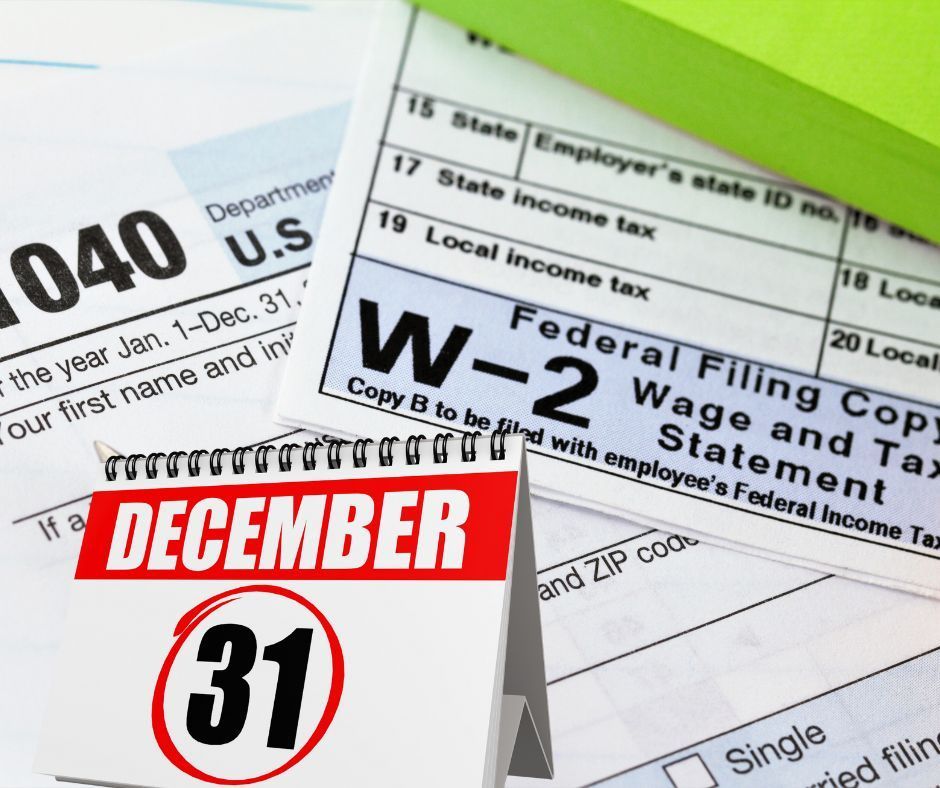
NEW Deduction Timing Strategies
(One Big Beautiful Bill)
- If receiving tips: Track carefully to maximize $25,000 deduction
- If earning overtime: Maximize overtime hours if below income phaseout
- If buying a vehicle: Ensure it's US-assembled to qualify for interest deduction
- If age 65+: Consider income management to stay under thresholds
Investment Strategies
- Review portfolio for tax-loss harvesting opportunities
- Offset capital gains with capital losses
- Consider timing of investment sales
- Avoid purchasing mutual funds in taxable accounts near year-end
Deduction Acceleration
- Prepay January mortgage payment before year-end
- Pay estimated state income taxes before year-end (especially with higher SALT cap)
- Make charitable contributions before December 31
- Schedule and pay for medical procedures before year-end
- Pay property taxes before year-end (take advantage of $40,000 SALT cap)
Retirement Account Actions
- Max out retirement account contributions before deadline
- Consider catch-up contributions if age 50+
- Take Required Minimum Distributions (RMDs) if age 73+ by December 31
- Review beneficiary designations
Special Situations & Life Events
Major life changes often come with tax implications. Don't overlook these situations.
Major Life Changes
- Marriage or divorce
- Birth or adoption of a child
- Death of spouse or dependent
- Job change or unemployment
- Home purchase or sale
- Starting or closing a business
- Retirement
- Turning age 65 (NEW senior deduction available!)
Other Considerations
- Received an inheritance or gift
- Received a legal settlement or award
- Forgiveness of debt
- Disaster losses (casualty or theft)
- Identity Protection PIN from IRS (if previously issued)
- Purchased a vehicle with a loan (NEW car loan interest deduction)
Estate Planning & Wealth Transfer (NEW!)
The One Big Beautiful Bill significantly increased estate and gift tax exemptions, creating valuable planning opportunities for families with significant assets.
How it works:
- Federal estate, gift, and generation-skipping transfer (GST) exemptions increased to $15 million per individual ($30 million for married couples) beginning in 2026
- Indexed for inflation in future years
- Provides substantial flexibility for wealth transfer and multi-generational planning
Checklist items:
- Review existing estate plans under new exemption amounts
- Consider strategic gifting opportunities while exemptions are elevated
- Update wills, trusts, and beneficiary designations
- Consult with an estate planning attorney if you have significant assets

Important Deadlines
Mark these dates on your calendar — missing a deadline can cost you money.
2026 Tax Year Deadlines
- January 15, 2026: 4th quarter 2025 estimated tax payment due
- January 31, 2026: W-2 and 1099 forms deadline for distribution
- April 15, 2026: Individual tax return filing deadline (can request extension to October 15)
- April 15, 2026: IRA contribution deadline for 2025 tax year
- Quarterly dates: Estimated tax payments due (April 15, June 15, September 15, January 15)
URGENT Action Items
- September 30, 2025: LAST DAY for Electric Vehicle Tax Credit
- December 31, 2025: LAST DAY for Energy Efficient Home Improvement Credit
Don't wait! If you're considering an electric vehicle or energy-efficient home improvements, these deadlines are approaching fast.
Before Filing: Final Checklist
Before you submit your return, run through these final checks:
- Review all entries for accuracy
- Verify Social Security numbers (required for new deductions)
- Verify W-2 shows tips and overtime separately (if applicable)
- Verify vehicle information for car loan interest deduction (if applicable)
- Check math calculations
- Ensure all required forms and schedules are included
- Sign and date the return
- Keep copies of tax return and all supporting documents for at least 3 years
- Consider electronic filing for faster processing and refunds
One Big Beautiful Bill - Quick Reference
Not sure what's new? Here's your at-a-glance summary of the major changes.
Effective Tax Years: 2025-2028 (unless otherwise noted)
✅ Tips Deduction: Up to $25,000/year (above-the-line)
✅ Overtime Deduction: Up to $12,500 (single) or $25,000 (joint) per year
✅ Car Loan Interest Deduction: Up to $10,000/year for US-assembled vehicles
✅ Senior Deduction: Additional $6,000 if age 65+
✅ SALT Cap Increase: Raised to $40,000 (for incomes under $500,000)
✅ Child Tax Credit: Increased to $2,200 for 2025 (indexed for inflation thereafter)
✅ Standard Deduction: Additional increases of $1,000-$2,000 depending on filing status
✅ QBI Deduction: Made permanent at 20%
✅ 100% Bonus Depreciation: Restored for qualified property
✅ 1099-NEC/MISC Threshold: Increased to $2,000 (starting 2026)
⚠️ EV Tax Credit: EXPIRES September 30, 2025
⚠️ Energy Efficient Home Credit: EXPIRES December 31, 2025
Making Sense of the Changes
Tax laws this complex can feel overwhelming. Between new deductions you've never had access to before the OBBB, updated limits on existing credits, and changing deadlines, it's a lot to keep track of.
That's exactly why we're here.
At Carolina Business Services, we're staying on top of every detail of the One Big Beautiful Bill and how it affects your unique situation. We've spent hours reviewing IRS guidance, analyzing the new regulations, and planning strategies to maximize your savings.
How We Can Help
When you work with Carolina Business Services, you get:
✓ Expert guidance on all the new OBBB deductions and credits
✓ Personalized tax planning tailored to your specific situation
✓ Year-round support — not just during tax season
✓ Proactive strategies to minimize your tax liability
✓ Peace of mind knowing nothing is missed

We'll help you determine which new deductions apply to you, ensure you're claiming every credit available, and identify planning opportunities you might not know existed.
Ready to Get Started?
We're here year-round to help with all your tax concerns and questions—not just during tax season. Whether you're navigating a major life change, planning a large purchase, or simply want to make sure you're on track, we're available when you need us.
Contact us today at 828-287-9595, send an email, or stop by our office in Spindale.
We'll continue following tax law changes closely and sharing updates, so when it's time to prepare your 2025 income tax return, you'll know exactly what to expect—and how to make the most of every opportunity.
Our focus is simple: Keep watch over the complicated details and translate them into plain language, so you know exactly what matters for your tax return.
Fast, Efficient, and Always Focused on You!
Want a Printable Version?
Download our free Tax Planning Checklist PDF to print and keep handy as you organize your tax documents throughout the year. The checklist includes all the items covered in this guide plus easy-to-use checkboxes to track your progress.
Download Free PDF Tax Planning Checklist

Sources & Related Resources
This guide draws from official IRS guidance and tax law documentation. For additional information and related topics, explore these resources:
Official IRS Resources
- Official IRS guidance on OBBB provisions: One Big Beautiful Bill Provisions
- Comprehensive withholding guidance: Publication 505
- Complete individual tax reference: Publication 17
- Tax Guide for Small Businesses: Publication 334
- Inflation Adjusted Tax Items: Inflation-adjusted tax items by tax year
Related Articles from Carolina Business Services
- Complete overview of the new tax law and how it affects individuals, families, and businesses: One Big Beautiful Bill and Your Taxes
- Everything you need to know about the tips income deduction, including who qualifies, how to claim it, and income limits: No Tax on Tips: Your Complete Guide
- Essential tax planning tips, common mistakes to avoid, and helpful resources to stay organized throughout the year: Tax Tips & Free Resources
- Stay Informed: Visit our Taxing Times Blog for regular updates on tax law changes, planning strategies, deadline reminders, and answers to frequently asked questions.
Disclaimer: This article is for general informational purposes only. Tax laws include many conditions and exceptions, not covered in this article, that may apply differently to each taxpayer. It is not legal or tax advice. For guidance on your specific situation, consult your tax professional or attorney.


